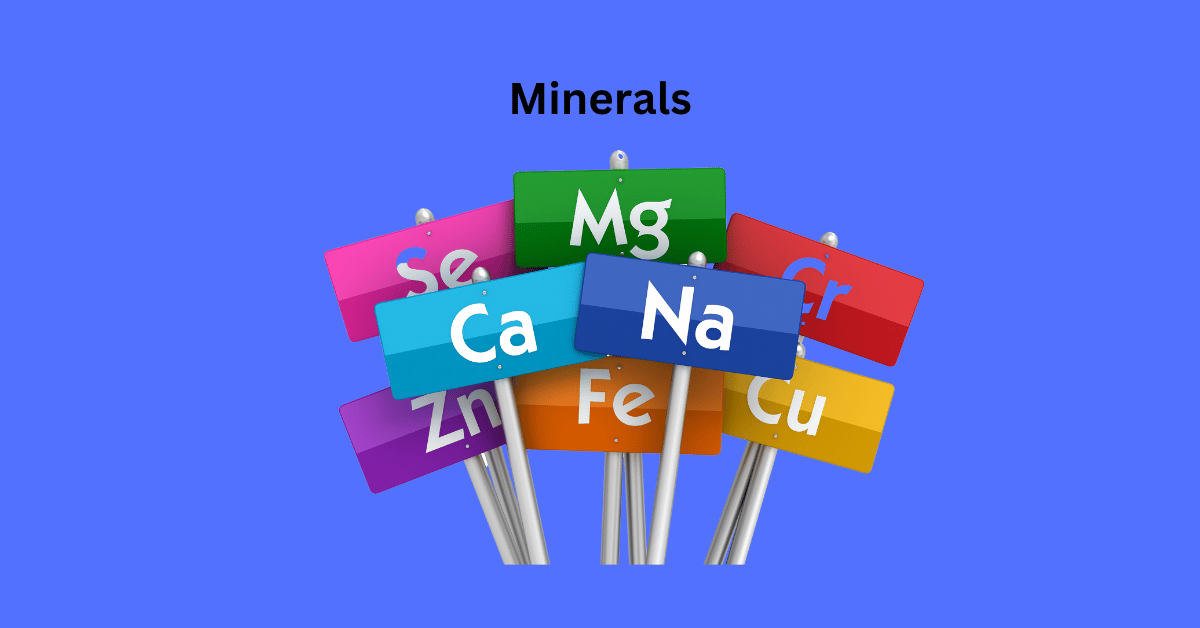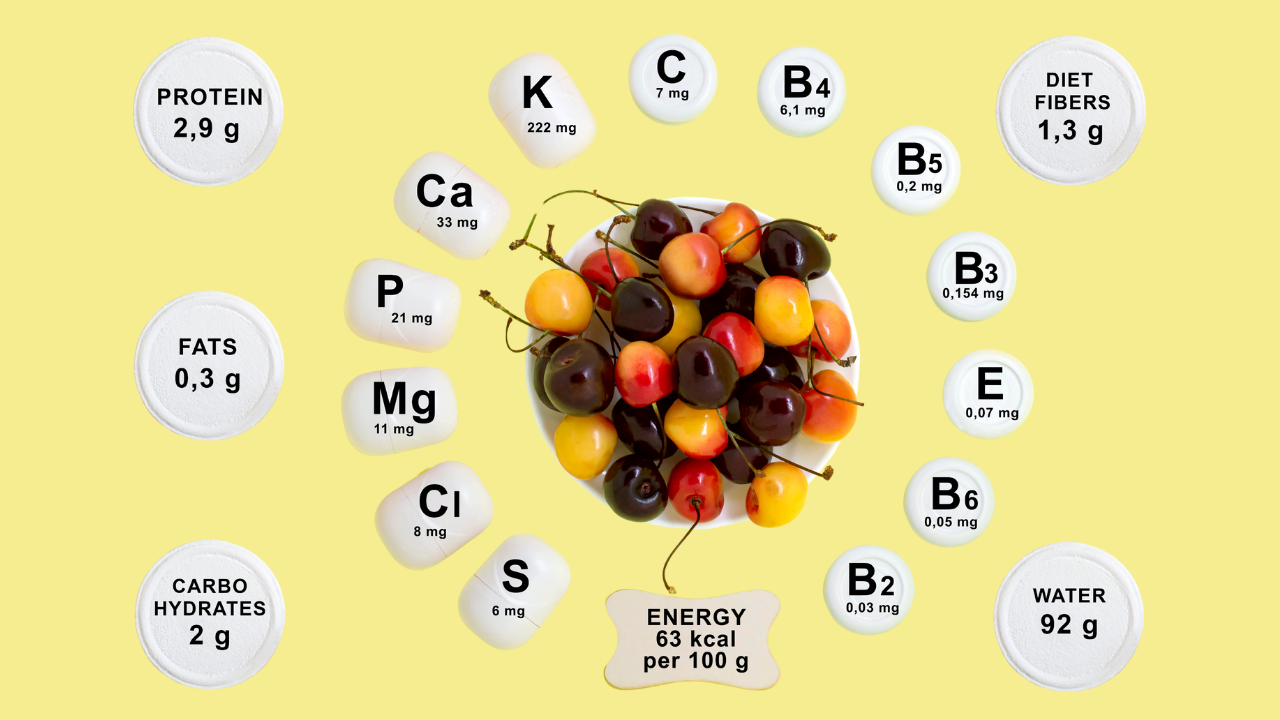Vitamins and minerals are crucial components of our diet, pivotal in maintaining optimal health and wellness. The importance of these micronutrients often leads many of us to consider vitamin and mineral supplements to ensure our daily intake meets the recommended levels.
Our focus in this article will be on essential minerals, examining their daily intake, various sources, and their profound impact on our health. The objective is to guide you in selecting the best mineral supplement that aligns with your nutritional needs and lifestyle.
Essential Minerals and Their Role in Human Health
Minerals refer to essential inorganic nutrients that the human body requires for various physiological functions. Proper mineral intake is crucial for overall health and the prevention of deficiencies and related health issues.
Each mineral plays a unique role in our body, from building strong bones to transmitting nerve impulses. Some minerals are even used to make hormones or maintain a normal heartbeat.
The two kinds of minerals are: macro (major) and trace (micro) minerals. The former are needed in larger amounts, while the latter are needed in smaller quantities. Regardless, both are critical for maintaining optimal health.
One way to ensure adequate mineral intake is to consume a balanced diet rich in fruits, vegetables, whole grains, and lean protein. However, for those unable to meet their mineral needs through diet alone, mineral supplements provide a viable alternative.
They can help address specific deficiencies and contribute to overall wellness. When choosing a mineral supplement, it’s important to consider one’s individual health circumstances, dietary restrictions, and lifestyle habits to select the best fit.
The Recommended Minerals Daily Intake
| Mineral | Daily Intake for Women (RDA/AI) | Daily Intake for Men (RDA/AI) |
|---|---|---|
| Calcium | 1,000 mg (31-50 yrs), 1,200 mg (51+ yrs) | 1,000 mg (31-50 yrs), 1,200 mg (51+ yrs) |
| Chloride | 2.3 g (19-50 yrs), 2.0 g (51-70 yrs), 1.8 g (71+ yrs) | 2.3 g (19-50 yrs), 2.0 g (51-70 yrs), 1.8 g (71+ yrs) |
| Chromium | 25 µg (31-50 yrs), 20 µg (51+ yrs) | 35 µg (31-50 yrs), 30 µg (51+ yrs) |
| Copper | 900 µg | 900 µg |
| Fluoride | 3 mg | 4 mg |
| Iodine | 150 µg | 150 µg |
| Iron | 18 mg (31-50 yrs), 8 mg (51+ yrs) | 8 mg (31-50 yrs), 8 mg (51+ yrs) |
| Magnesium | 310 mg (19-30 yrs), 320 mg (31-70+ yrs) | 400 mg (19-30 yrs), 420 mg (31-70+ yrs) |
| Manganese | 1.8 mg | 2.3 mg |
| Molybdenum | 45 µg | 45 µg |
| Nickel | Research Inconclusive** | Research Inconclusive** |
| Phosphorus | 700 mg | 700 mg |
| Potassium | 2,300 mg (14-18 yrs), 2,600 mg (19+ yrs) | 3,000 mg (14-18 yrs), 3,400 mg (19+ yrs) |
| Selenium | 55 µg | 55 µg |
| Sodium | 1,500 mg* | 1,500 mg* |
| Zinc | 8 mg | 11 mg |
In cases marked with “Research Inconclusive,” substantial evidence is lacking to determine a dietary reference intake.
The Top Minerals Dietary Sources
Consuming a diverse diet is the best way to ensure adequate mineral intake. Some top minerals dietary sources include dairy products for calcium; red meat, beans, and leafy greens for iron; nuts, seeds, whole grains, and dark chocolate for magnesium; and seafood, meat, and legumes for zinc. For those following specific diets or dealing with certain health issues, mineral supplements can help ensure they meet their RDIs.

The Micronutrient Contents Per Food
The micronutrient content varies from food to food. For instance, one cup of cooked spinach has about 245 mg of calcium, while one cup of navy beans contains about 4.5 mg of iron.
A quarter cup of pumpkin seeds provides around 190 mg of magnesium, and a 3-ounce serving of cooked oysters contains a substantial 74 mg of zinc.
Minerals rich food sources are essential for meeting the recommended daily intake without relying on supplements.
The Implications of Minerals Deficiencies
Deficiencies in these essential minerals can lead to numerous health issues. Calcium deficiency can result in weak bones and teeth, while iron deficiency can cause anemia and fatigue.
Magnesium deficiency can lead to muscle cramps and insomnia, while zinc deficiency can impair the immune system and wound healing. It’s important to monitor intake and consider supplements when necessary.
The Intricate Web of Interactions
The intricate web of interactions between different minerals, vitamins, and other nutrients can significantly influence our health. Mineral absorption can be affected by multiple factors, including the presence of other nutrients.
For example, vitamin D is essential for calcium absorption, while vitamin C enhances iron absorption. Therefore, a balanced diet or well-formulated supplement regimen is crucial to maximizing the benefits of these essential minerals.
The Best Vitamins And Mineral Supplements
The best mineral supplement for one individual may not be suitable for another, as needs vary from person to person. For example, pregnant women require higher amounts of iron and calcium to support their developing baby’s needs.
Similarly, athletes need more magnesium for muscle function and recovery. Before starting any new mineral supplements, it’s essential to consult a healthcare professional to determine any deficiencies and the appropriate dosage.
That being said, some popular mineral supplements recommended by healthcare professionals include:
- Calcium: Essential for bone health, calcium is also involved in muscle contraction and nerve function. It is typically found in dairy products and leafy greens.
- Iron: Important for transporting oxygen throughout the body, iron is especially essential for pregnant women and those with anemia. Great sources of iron include red meat, beans, and leafy greens.
- Magnesium: This mineral is involved in over 300 biological processes and helps regulate blood pressure and nerve function. Good sources are nuts, seeds, whole grains, and dark chocolate.
- Zinc: An essential mineral for immune function and wound healing, zinc can be found in seafood, meat, and legumes.
- Vitamin D: While technically a vitamin, this nutrient helps absorb calcium for strong bones and supports immune function. Sunshine is the best source of vitamin D, but it can also be found in fatty fish and fortified foods.
These are just some of the many mineral supplements available that cater to different needs. When considering a supplement, it’s important to research the brand and consult with a healthcare professional to ensure safety and effectiveness.
Conclusion
Vitamins and minerals are crucial constituents of our diet, play a significant role in maintaining our overall health. Ensuring an adequate intake, either through a varied diet or via vitamin and mineral supplements, is essential for preventing deficiencies and health complications. The quest for the best mineral supplement is highly individual, considering each person’s unique health circumstances and dietary habits. Always remember the importance of consulting healthcare professionals before starting any supplementation, and aim to source vitamins and minerals predominantly from whole foods wherever possible.
References
Tsugawa, N., & Shiraki, M. (2020). Vitamin K nutrition and bone health. Nutrients, 12(7), 1909.







